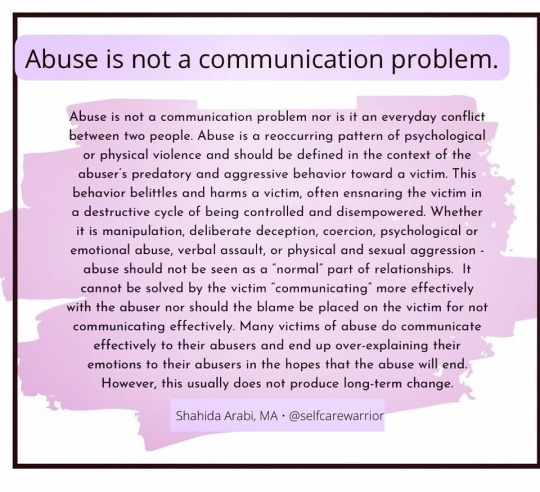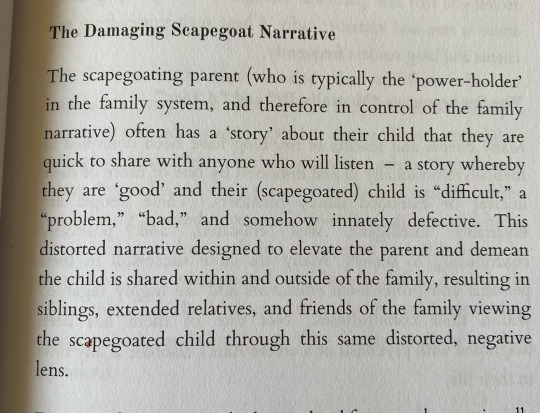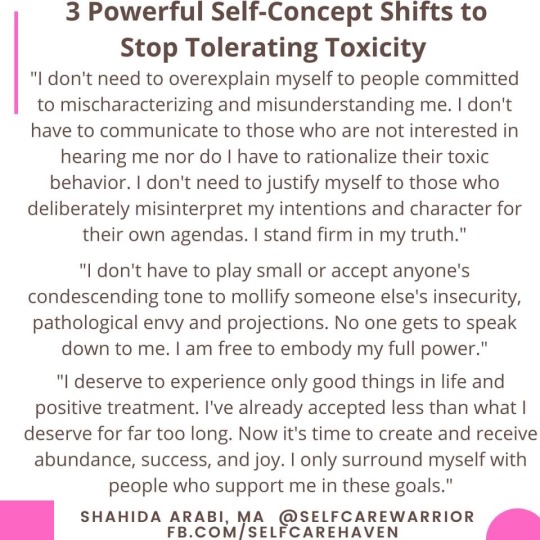Text
RESISTT
This is a DBT skill that is useful for resisting urges.
Reframe the situation
When we feel overwhelming emotions, it's easy to start thinking things like "this is terrible and nothing will ever get better" especially with a lot of us dealing with a lack of emotional permanence. Reframing the situation means changing your perspective. While things may feel overwhelming and it's easy to get stuck in that, changing our thought to "Things are really hard right now. But I've experienced things being really hard before and I've survived. I will survive this too."
Engage in a distracting activity
The next part in the RESISTT technique is engage in a distracting activity. Pick an activity that you enjoy or find distracting. I find it helpful to create a list of distracting things I can do when I'm calm that I can pull out in times of need. This might include things like watching a show, playing a game, reading a book, etc.
Someone else
Focus on someone else. Maybe you can be there for a friend, or plan a surprise for someone. Focusing our attention on someone else can work as a distraction. You could even focus on your pet if you have one. Taking your dog for a walk, or a game of fetch might make them really happy and distract you.
Intense sensations
Intense sensations can work really well as a distraction. This might include holding an ice cube, having a cool shower, or have a hot drink or hot shower. Please be sure to do these things safely.
Shut it out
We're often told that "shutting it out" is a bad thing to do, and that can be really true. But sometimes we don't have much of a choice. If we're experiencing our crisis while we're out shopping. The goal of this is to get to a quiet place to sit down and think about the situation. Is it a problem you can solve right now? If the answer is "no", then try and visualize yourself physically putting your problem into a box and sealing it. Putting it aside for the time being until you
Neutral Thoughts
This involves thinking about things that don't add to your stress. Counting in your head, reciting song lyrics in your head or things like that can be helpful. Maybe there's an activity you can even do in your head.
Take a break
How taking a break looks will be unique to you. Maybe this means putting aside some of your "to do" list for the next day. Maybe it means taking a mental health day if that's available to you. There is no shame in needing to rest and take a break.
479 notes
·
View notes
Text
Why Does He Do That? Inside the Minds of Angry and Controlling Men (Lundy Bancroft, 2002)
“Abusive men are often jealous and possessive, and their coercive and destructive behaviors can escalate when their partners attempt to break up with them.
Some psychologists have glanced quickly at this pattern and concluded that abusers have an extreme fear of abandonment.
But many people, both male and female, are afraid of abandonment and may reel from panic, heartbreak, or desperation when being left by a partner.
If a person’s panicked reaction to being left could cause threats, stalking, or murder, our entire society would be a war zone.
But postseparation homicides of intimate partners are committed almost exclusively by men (and there is almost always a history of abuse before the breakup).
If fear of abandonment causes postseparation abuse, why are the statistics so lopsided?
Do women have a much easier time with abandonment than men do? No, of course not.
A close cousin of the abandonment myth is the belief that abusive men “are afraid of intimacy, ” which attempts to explain why most abusers mistreat only their partners and why most are male.
According to this theory, the abuser uses his periodic cruelty to keep his partner from getting too close to him emotionally, a behavior which, in the language of psychologists, is called mediating the intimacy.
But there are several holes in this theory.
First, abusive men usually have their worst incidents after a period of mounting tension and distance, not at the moments of greatest closeness.
Some keep their emotional distance all the time so the relationship never gets close enough to trigger any fears of intimacy they might have, yet the abuse continues.
Wife abuse occurs just as severely in some cultures where there is no expectation of intimacy between husbands and wives, where marriage has nothing to do with real emotional connection.
And, finally, there are plenty of men who have powerful fears of intimacy who don’t abuse or control their partners—because they don’t have an abusive mentality.”
25 notes
·
View notes
Note
Sending hugs if you'll have them.
Take care
Thank you! I’ve been away for a while so here goes again…
4 notes
·
View notes
Text
Thoughts from my journal…
Apart from my Mom, who was also a victim of my father, others in my family can't see it and I don't even try to talk to them about it. They just have to accept that I don't want to see him, one person asked why and I didn't answer. It's useless, they won't believe me and it will make things even worse for me. I know it hurts, but you can't count on them if they're close to the narcissist who knows exactly how to turn things around in their favor. There's also this unhealthy belief that if you talk, you're trying to destroy the family. It's wrong in so many ways, but if we can't change it, we need to protect ourselves from it. Sometimes that means having to accept we'll never find support from said family, only from others who will become your real family.
1 note
·
View note
Text
I understand that the narcissist will never see their own hypocrisy, but how do you get others to see it?
The most upsetting part of narcissistic abuse is the flying monkeys. Their devotion to the narcissist and refusal to accept that the narcissist is a liar and an emotional abuser is so harmful to the victims. When it's family acting as the flying monkeys, it feels like such a betrayal. These are people who should care just as much about the victim(s) of the abuse, as they do about the abuser. But as soon as you hold the narcissist accountable for their mistreatment, and they begin to melt down, all the flying monkeys care about is helping the narcissist save face. Even if you're able to recognize this codependent and toxic dynamic, and that you're better off removing yourself from it, it still feels like such a betrayal.
4 notes
·
View notes
Text

Living or working with an abuser is miserable and toxic. Everything around them dies. Abuse causes nothing but pain and destruction, low self esteem, grief, confusion, disassociation, addictions, eating disorders, disfunction, disregulation, anxiety, numbness, deep depression and trauma. Nobody leaves an abusive home unharmed. I have sat in hundreds of hours of group therapy with hundreds of broken down grown adults who are trying to put themselves back together after leaving parents or partners who either overtly or covertly abused them.
Abusers know exactly what they are doing and they choose to do it. Abusers abuse for one reason and one reason only: power and control. They value power and control above all else and will destroy anyone, including their own children, in order to get it.
Abuse is a systematic power grab over a person that starts out slowly but surely, and begins to wear down your boundaries little by little. Abusers are relentless and calculating and they will never change. Abusers are pathologically incapable of taking responsibility for their behaviour, or changing their behaviour because to do so, would mean giving up their power and control.
4 notes
·
View notes
Text
Emotional neglect is exhausting. Almost debilitating. Part of emotional abuse/neglect is not listening. Not communicating, in the moment or on a larger scale.
The abuser lives in a silo and thinks all things are according to the way they think and feel. There is no way to come out on top of a discussion, if you even happen to be included all. Don’t even try to explain yourself, it’s met with comments like, “you just have to get the last word”, “it’s all about you”, “you just can’t let it go”, OR “I KNOW how you feel” when they clearly aren’t even close. It’s just part of that world-according-to-them philosophy.
They would fall off a cliff and take you with them with their irrationality before they would ever realize or admit you might have an valuable contribution. And they gaslight you into thinking you are nuts, irritating, hard to get along with. Ironically, when all you do is spend all of your time trying to pick and choose your words carefully and stay out of their way as much as you can.
Over time, IT GETS SO MUCH WORSE.
1 note
·
View note
Text
I think this is a very important distinction to make. I had never been in an abusive relationship before I met my ex husband. So I believe I really did consider the giant red flags as challenges, because in a normal healthy relationship this is normal. Everyone has issues and it’s up to both people to learn how to adapt and work together. I really did believe that if we worked hard enough we would able to work through anything. It took me a long time to realize that I was not married to someone who was willing to work together as a team to fix our issues. He had absolutely zero intention of working on anything and that was really shocking to me. I’d never dated a man who wasn’t at least on some level motivated to address his issues if they were causing pain. Abusers have absolutely zero ability to self reflect. They are entitled, not responsible. They will never take responsibility for their behaviour, ever. Trying to work through problems is as effective as banging your head against the wall.
I am really learning that I went wrong in assuming his abusive behaviour would be fixed if “we worked it through”. Abusers don’t work that way. There is no teamwork, because they will never consider that their behaviour is the actual problem. I am considering dating eventually, and I am feeling so unsure about my ability to tell the difference between a challenge and a deal breaker.
1 note
·
View note
Text

My nephew is not, and has not ever been “difficult”. His “bad behaviour” is him reacting normally to abuse, and mistreatment. I know this, because I raised him.
1 note
·
View note
Text
You are already tough.
Being soft after the hardness you’ve experienced shows incredible strength.
Trusting others after the way you’ve been harmed shows guts.
Facing the heavy shit no one else would face, therefore further alienating you from your support system shows incredible determination.
Living in a world that lacks the vocabulary to honor you, your experiences and what you’ve overcome shows self-confidence.
You are already tough. Dont you dare forget it and when people get confused about what tough is, remind them with your ability to love and honour yourself in the midst of someone else’s dissonance.
You are already tough.
3 notes
·
View notes
Text
Thoughts…
I think we don't realize how the words of others' paint a picture in our minds -whether we want them to or not. If you hear something negative about someone -you may not even recall who said it or what they said specifically-but a negative perception is still hard to shake off. Often times it’s completely unmerited. If you take the time to examine why you have a negative perception of someone and can’t come up with a reason - gossip has done its trick. It’s insidious. It works it’s way into your thoughts and opinions surreptitiously which means they aren’t even your thoughts in the first place. How much more sneaky and dishonest can anything get !? You dislike someone. Not because of anything THEY did or said. You’re not even sure what it is or where it came from. You’ve simply been tricked.
Narcissists are experts at using this all too common human tendency to their advantage and to turn you against others. It’s a way to control your thoughts and keep you isolated from others. The less you talk and share information and ideas with others, the more open you are to the narcissist’s version of the truth. The less likely you are to catch them in a lie. It’s a powerful and subtle way to manipulate people. They don’t want you having friends for many reasons. They are afraid you’ll find them lacking in comparison. They feel everything is a competition. They don’t like win-win scenarios but they will accept it rather than lose. They prefer it when they win and others lose. That bolsters their sense of superiority. They can only feel better or superior by knocking others down. They aren’t going to do the work involved in actually bettering themselves. This is a short cut to them. They don’t make the distinction in seeming like a decent person and actually being a decent person. All they can do is fake it. And they are very adept at falsehood. It seems like too much work but it’s all they know. To stay convinced that they are superior they can’t let themselves be bothered with going through all the steps anyone else has to take. They are supposed to be so awesome and special that they get there without even trying. There is zero gratitude or humility in them. There is no trust for others. They will attribute the worst of motives to other ppl. It’s all a reflection of themselves.
They accuse you of what THEY are guilty of. They do what they’d NEVER allow you to do. They treat you in ways they’d NEVER allow you to treat them. You can be there for them 999 out of 1000 times and they will only remember the one time you weren’t there. They will use this as an excuse to trample all over you with no regard for your feelings. But THEIR feelings remain of central importance. Their goals, their pain, their jokes, their appearance, their desires, moods, tastes, etc. yours never matter & never will. They only seem to care about your needs when they are trying to sweep you off your feet or win you back. It never lasts. There will always be highs and the absolute lowest of lows. No matter how long you’re together or how good of a time you have. No matter how much you bond or share experiences- you will eventually be devalued and betrayed again & again -NO MATTER WHAT. ALWAYS. EVERY TIME.
1 note
·
View note
Text
Does this ring a bell with you :
He/She will always define the terms
You will live by a set of double standards.
Nothing is his/her fault.
You feel that something is very wrong in your relationship but you can’t grasp it.
He/she will never resolve a conflict, as a result, they will continue to repeat.
You feel anxious when you are around him/her.
He/she will rarely consider your feelings; and will only do so if it serves him some how.
He/she will never apologize in an authentic way that acknowledges his/her behavior or your suffering.
What will matter most to him/her is how he/she appears to others.
He/she will ruin the majority of your birthdays and holidays.
He/she will be sullen during (or cause a fight before) events that are important to you because they are not about them.
He/she will NOT show up for you at times when you need a partner the most and will be rageful if you are upset about it.
You will be continually criticized, nothing is good enough. it’s an insatiable need for supply.
Your expectations will be managed down to mere crumbs; to the point where you will be happy just because he/she isn’t giving you the silent treatment, yelling at you.
He/she will threaten to leave the relationship in a cold and callous tone.
Beyond the initial stages of dating, he/she will make NO effort to befriend your friends or family unless knowing them benefits him in some way.
Your value will be diminished to the point of nothingness in his/her eyes. In fact, mere strangers will hold more weight in his/her eyes than you will.
He/she will be sometimes kind and full of love again just to beat you the next day. This is called intermittent reinforcement. you become addicted to his/her highs.
You will have sexual issues with him/her. He/She is rarely satisfied and/or can withhold physical intimacy. You will doubt yourself.
Simple conversations may become crazy-making endeavors.
You will find yourself walking on eggshells or walking through a minefield.
You will lose yourself because you will be trained to focus only on his/her feelings and reactions, never mind yours.
You will experience the silent treatment.
You will experience cognitive dissonance, gaslighting and trauma bond.
You put aside your basic needs and desires, sacrificing your emotional and financial safety to please the abuser.
He/she will isolate you from your friends and/or your family .
He/she will use your reactions to tell others how crazy you are.
He/she will blame you for all of the problems in the relationship.
You will blame yourself.
He/she will use your weaknesses, traumas and intimate secrets against you.
You will experience many dramatic exits, followed by a reappearance of the Narcissist acting as if nothing unusual had ever happened.
He/she will act like Dr. Jekyll/Mr. Hyde.
He/she will not do his fair share of household responsibilities and will criticize your efforts.
You will experience an emotional roller coaster .
When you try to hold him/her accountable or you criticize him/her. He/she will fly into a rage.
He/she is selfish, stubborn, materialistic, and extremely moody.
He/she will rarely ask you about your day and wish you to “have a good day.” He/she will never show genuine concern for things that you care about (unless it’s something he cares about.)
You will feel stuck, trapped and unable to leave him/her.
He/she will project his/her bad behaviors onto you and you will project your good intentions onto him /her— neither is accurate.
He/she will ruin your finances.
Your job will be to do everything in your power to restore the relationship to what it was.
The entire experience will result in trauma for you (depression , panic attacks, PTSD or C-PTSD).
He/she will compare you unfavorably to other women/men, especially his ex.
You will begin to feel crazy; then, over time, you will begin to feel numb.
If you go to couples counseling it will not work, and will most likely back fire on you. ( Please realize you do not have a marriage problem, your partner has a personality disorder)
He/she is extremely kind with strangers but when he/she is with you he/she turns into a monster behind the closed doors.
Once you start to wise up and pull away he/she will begin to smear your character behind your back in an attempt to turn people against you. In fact, he/she was probably doing this throughout your entire relationship.
When he/she discards you. He/she will act like nothing happened. He/she seems happy and relieved, you are devastated.
Most people will never fully believe your account of the relationship and the psychological trauma can take a lot of time to understand and recover from
And despite ALL this s**t you still love him/her. Not a qualification in site except my own experience at the hands / fists of an abuser.
4 notes
·
View notes
Text
“Toxic family members make life completely confusing and seemingly unlivable because you live in the illusive game of “how can I secure your love.” There is no securing love in a toxic family, but as children we have no concept of the this, let alone the ability to process what is happening. Toxic families drag their children through unreasonable amounts of change and uncertainty, overdosing them with feelings of not being emotionally safe. Whether the family was plagued by multiple marriages and divorces, inconsistent and unpredictable and emotionally violent moods swings, inconsistent finances, or rigid and inflexible rules riddled with scapegoating and criticism, or all of the above, there is no way to leave this type of environment emotionally stable. Families such as these place the burden on the children to figure out how to grow up; yet, when any of these children act out in a way that would be the normal healthy reaction to the dysfunction, they are scapegoated and labeled as the cause of family problems. If you are the scapegoated child, you must hold the mindset that your behavior as a child wasn’t the cause of the family problems, but rather it was a symptom of the trauma. Remember that only small people get an ego boost out of scapegoating and ostracizing another person, especially their own child. You are not a small person, and for that you can be so thankful.”
Dr. Sherrie Campbell Ph.D.
6 notes
·
View notes



